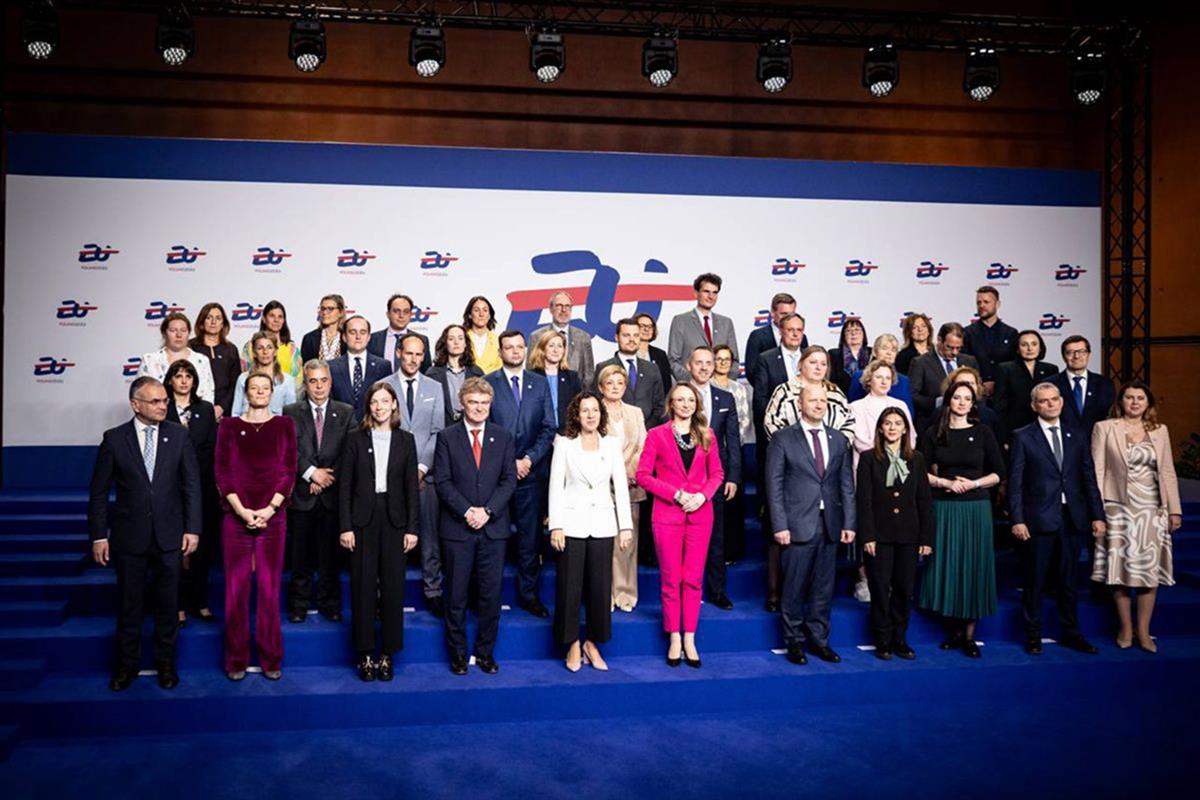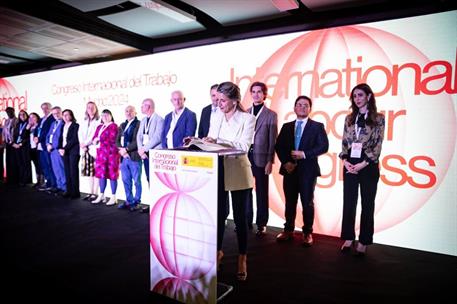 The Second Vice-President and Minister of Work and Social Economy, Yolanda Díaz, at the informal Employment, Social Policy, Health and Consumer Affairs Council (EPSCO), held in Warsaw
The Second Vice-President and Minister of Work and Social Economy, Yolanda Díaz, at the informal Employment, Social Policy, Health and Consumer Affairs Council (EPSCO), held in Warsaw
The Minister of Work and Social Economy has advocated for the participation of workers in business decision-making through social dialogue in order to advance a just transition with rights at the informal Employment, Social Policy, Health and Consumer Affairs Council (EPSCO), which is being held in Warsaw.
Social dialogue and democracy at work guarantee rights
In a context of constant change due to the increasingly widespread use of algorithms and artificial intelligence in the world of work and how these tools are transforming labour relations, the vice-president called for transparency and accountability, as well as the participation of workers in business decisions so that key decisions such as productivity, dismissals or the monitoring of employees, among others, do not fall to automated systems without human supervision.
"In the face of this, social dialogue is not an ornament: it is the cornerstone to ensure that the digital transition does not result in a loss of rights", explained the vice-president during her speech at the first plenary session of the day, which focused on Digital changes and algorithms in the world of work - development of social dialogue, workers' right to information.
Tackling labour changes by strengthening rights
The vice-president also explained the need to act in situations that could lead to excessive surveillance of workers or discrimination. Díaz recalled how Spain has been a pioneer in preventing the erosion of workers' rights with the so-called Rider Law in 2021. "We were the first European country to enshrine algorithmic transparency, recognising the labour nature of platform work. This regulation has not only improved working conditions in our country, but has also served as a benchmark for other reforms in Europe," explained the vice-president.
For Díaz, this is the path on which the European Union must continue to advance, promoting specific measures to strengthen workers' rights, such as the directive on platform work, but also proposing, for example, specific regulations on artificial intelligence in the workplace or updating information and consultation rights to the digital context.
The vice-president called for the use of available tools such as social dialogue and worker participation in the company to safeguard workers' rights. "If we want Europe to remain a democratic benchmark, it must start by guaranteeing democracy in the world of work as well," said Díaz.
Bilateral meeting with the new Austrian Minister of Labour
At the end of the session, the vice-president held a meeting with her new Austrian counterpart, the Minister of Labour, Social Affairs, Health, Care and Consumer Protection, Korinna Schumann, with whom she will sound out joint positions on various labour issues being addressed in the European Union, such as the digital disconnection, among others.
On Tuesday, the vice-president will continue to participate in the various EPSCO sessions and will take part in the ministerial panel of the European Forum of New Ideas, convened annually by the employers' association Confederation Lewiatan, which will address the challenges of work in Europe.
Non official translation






